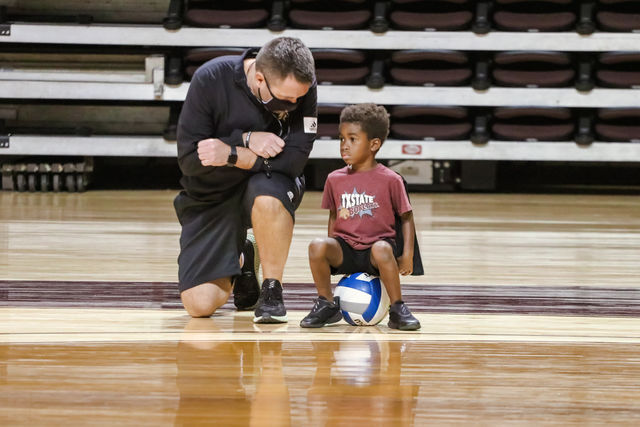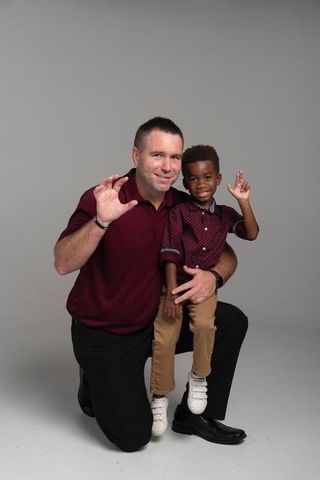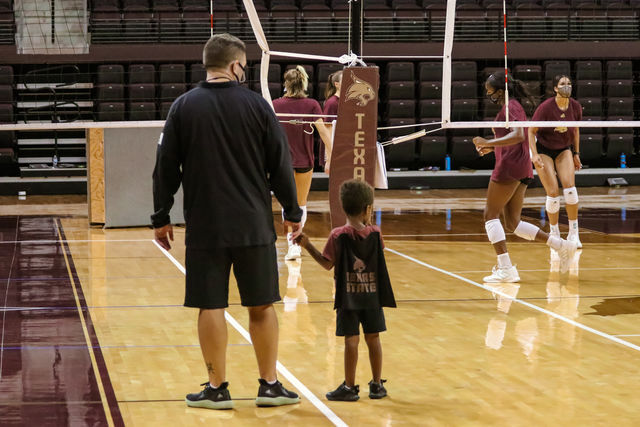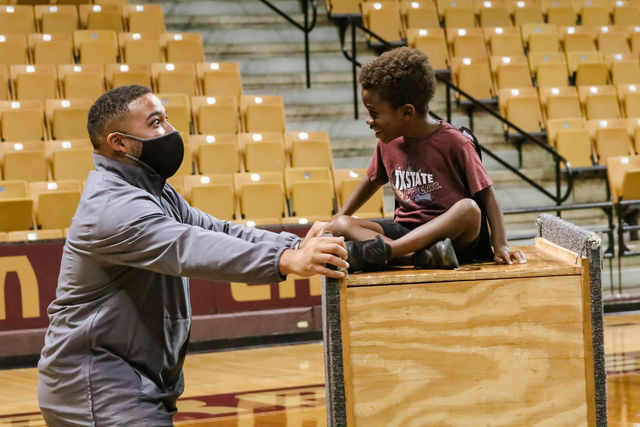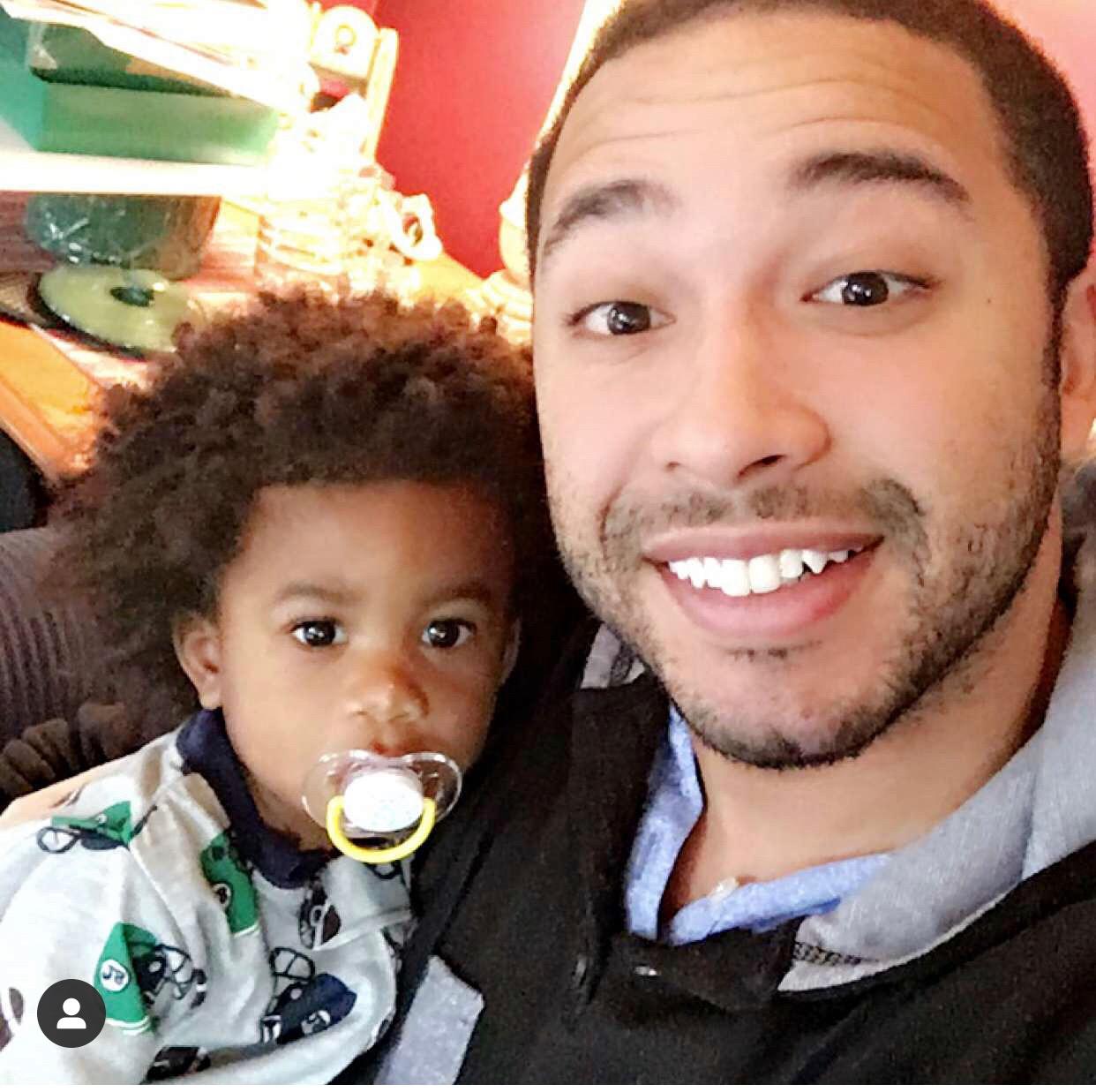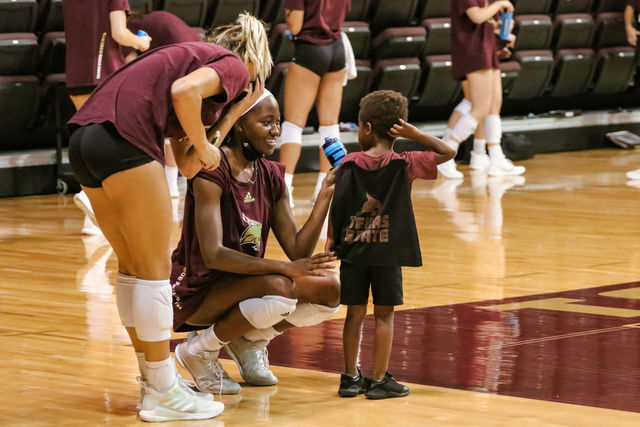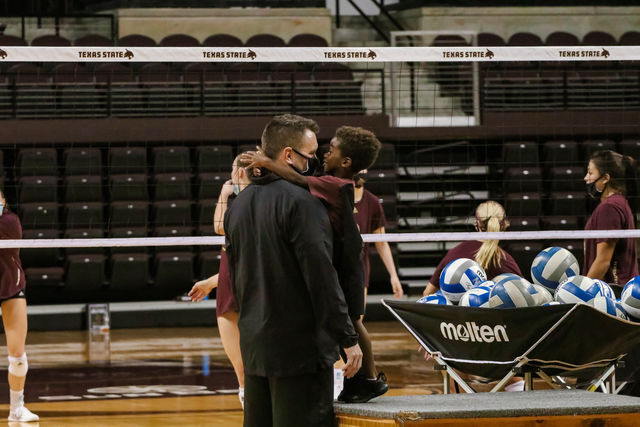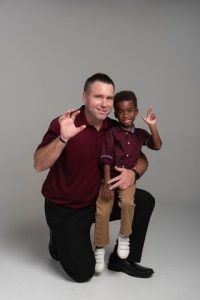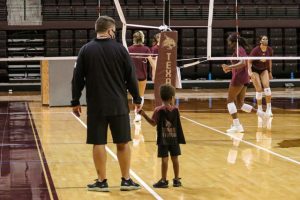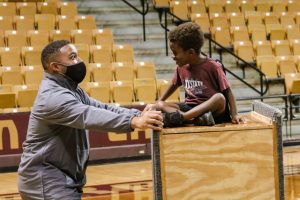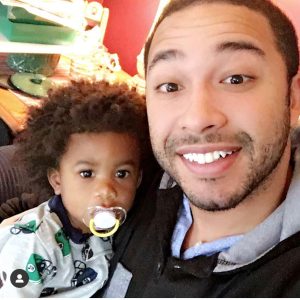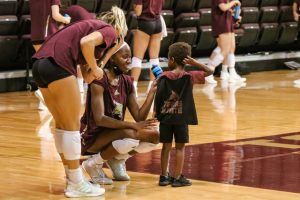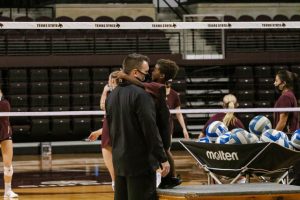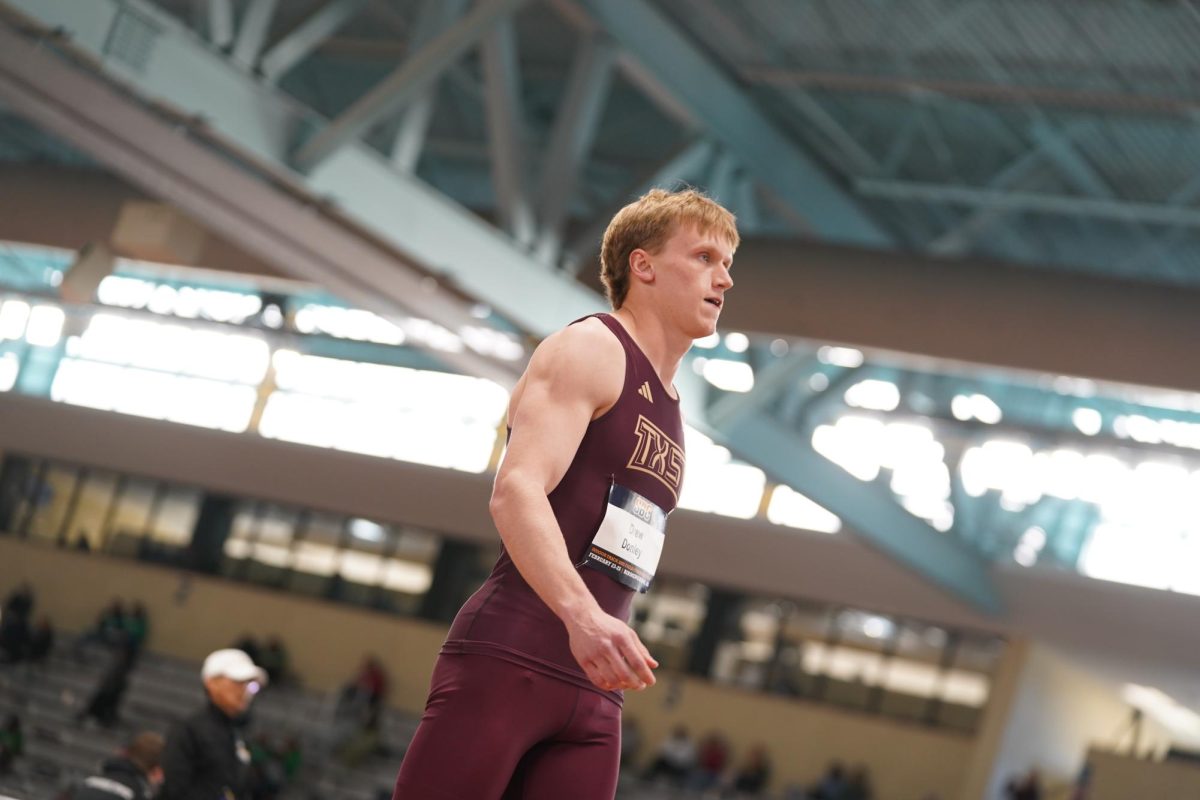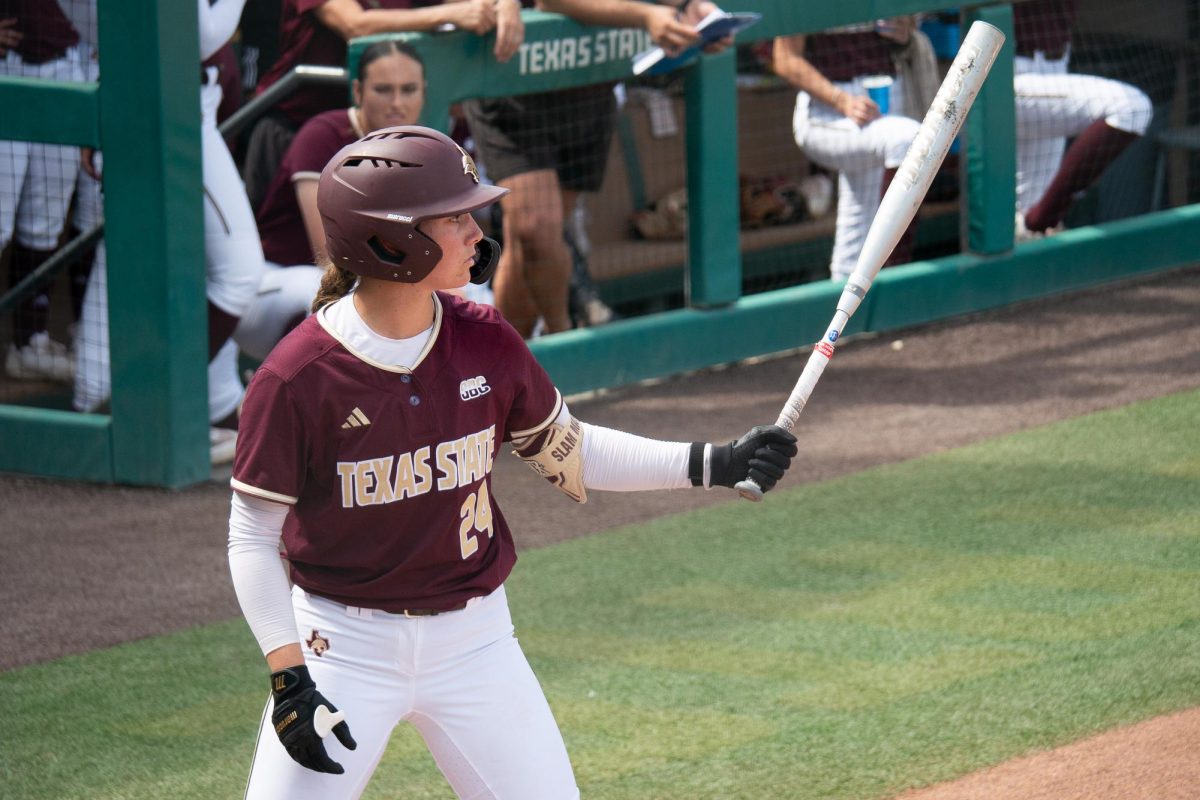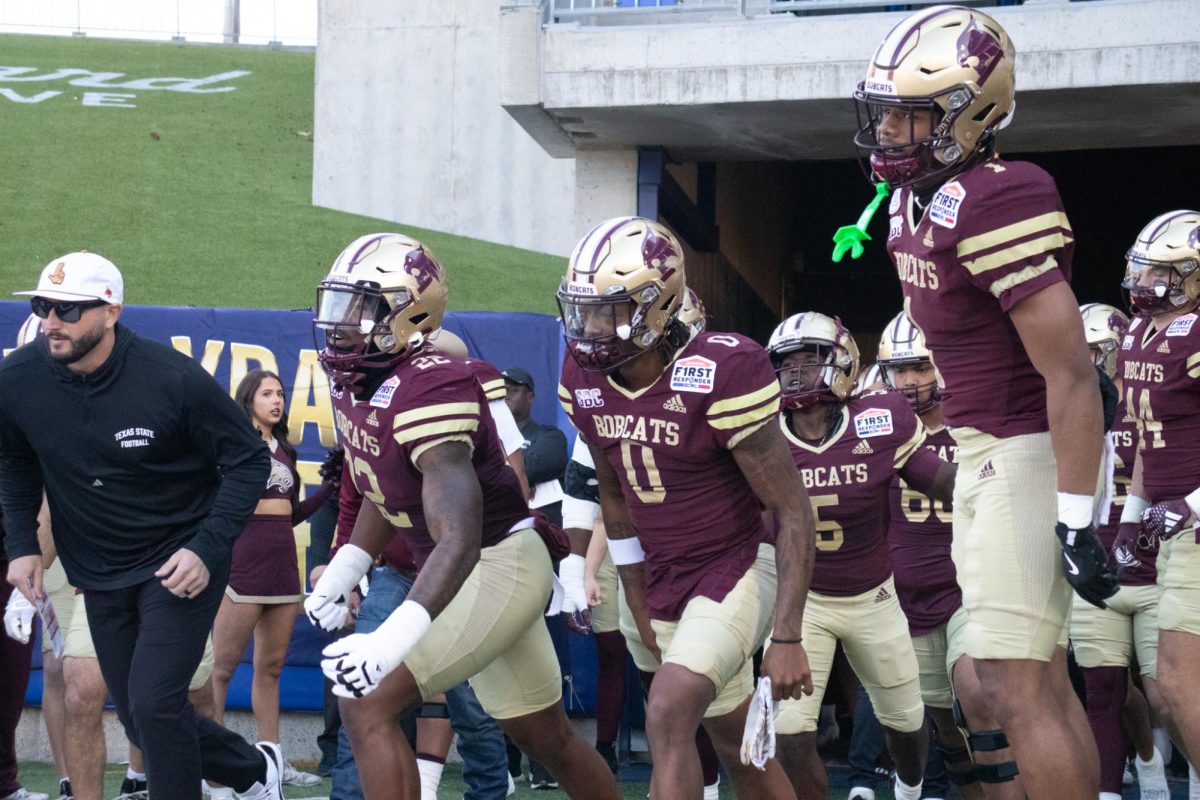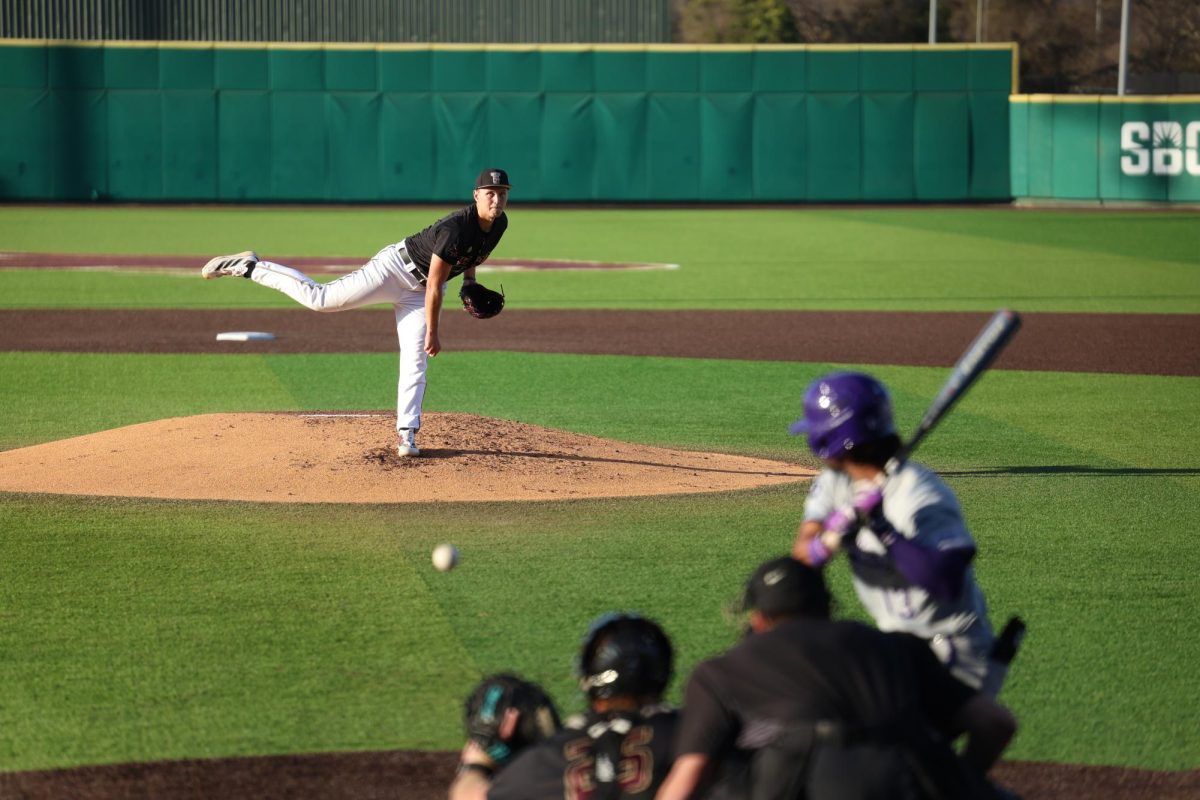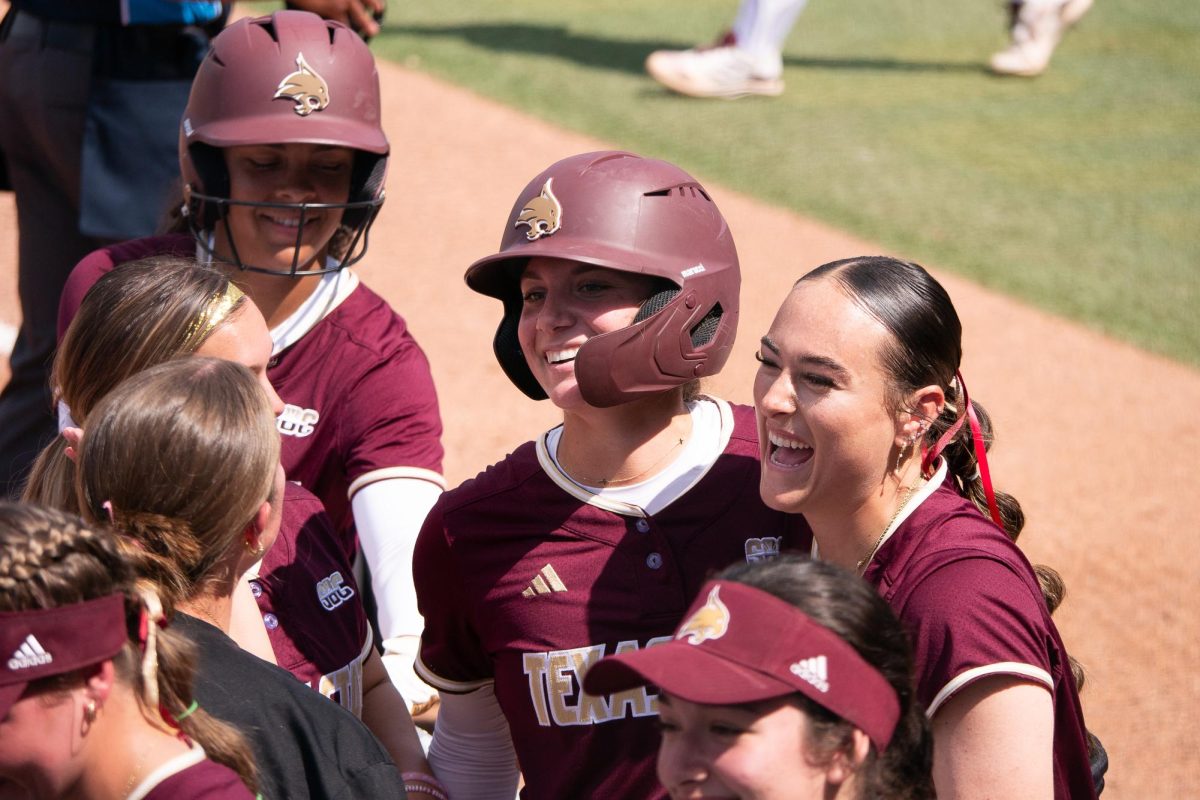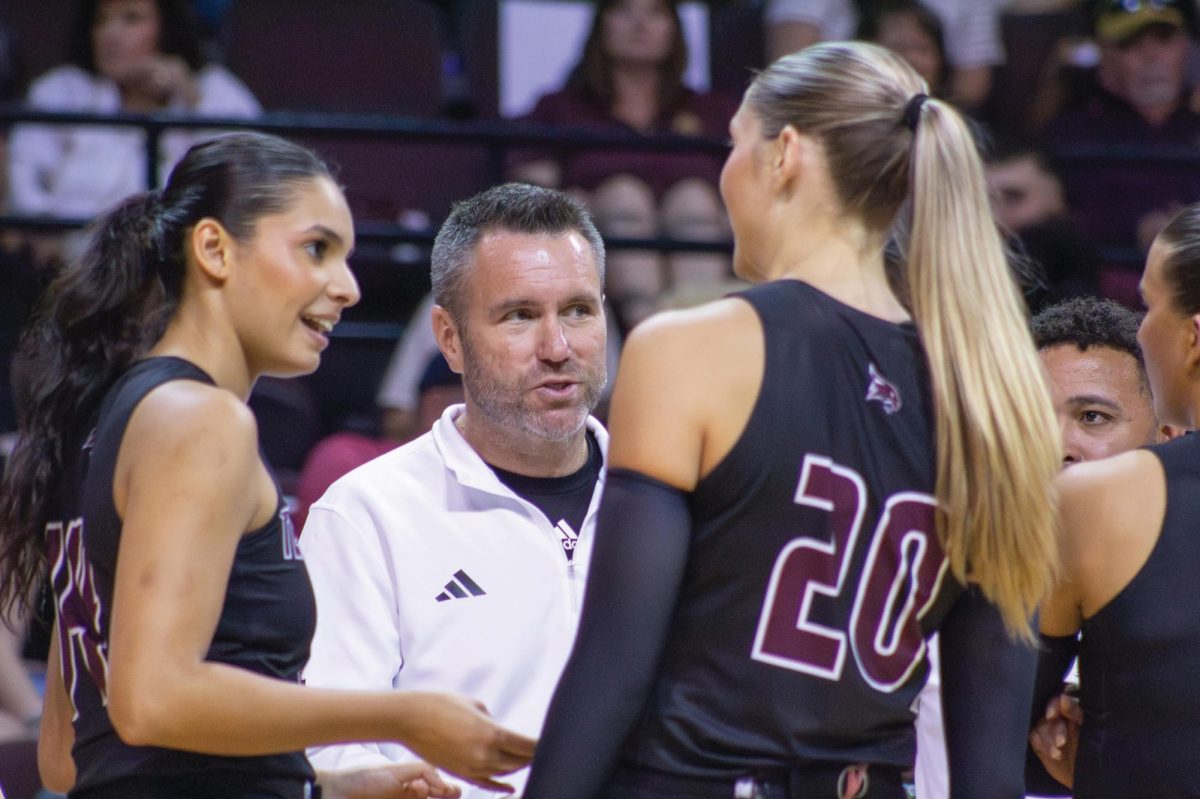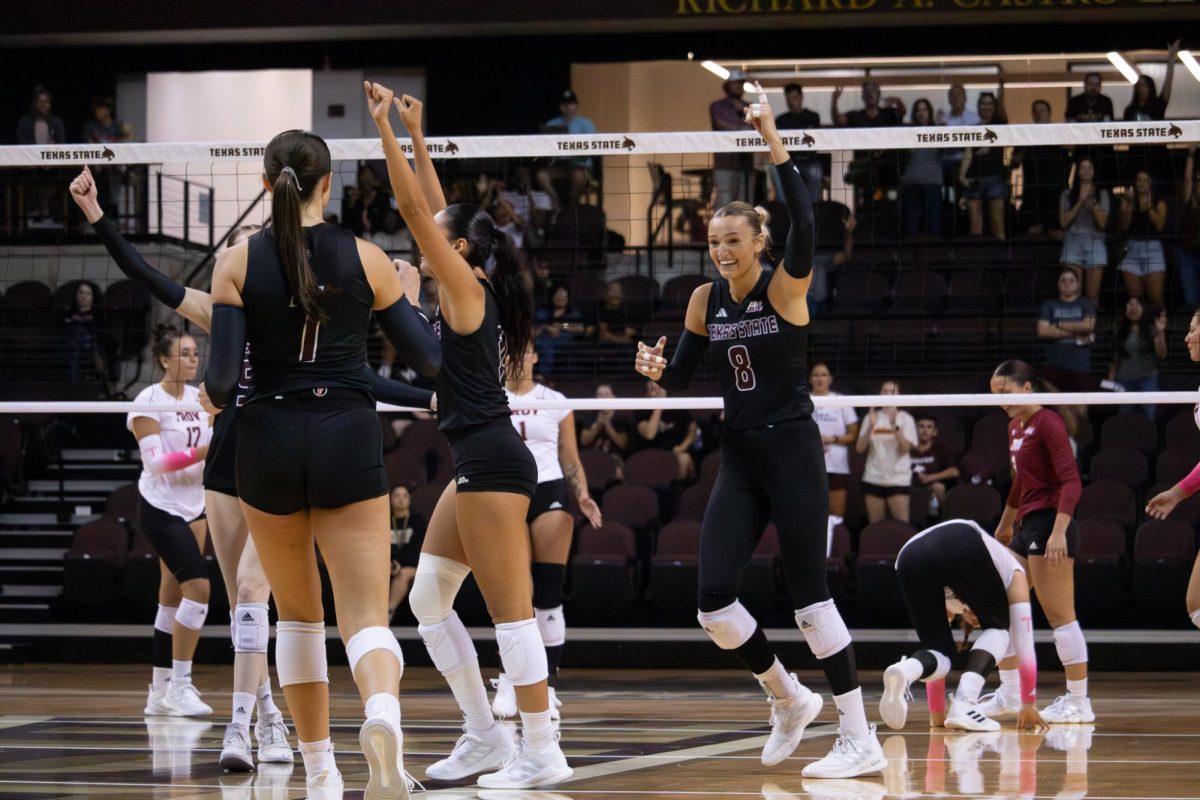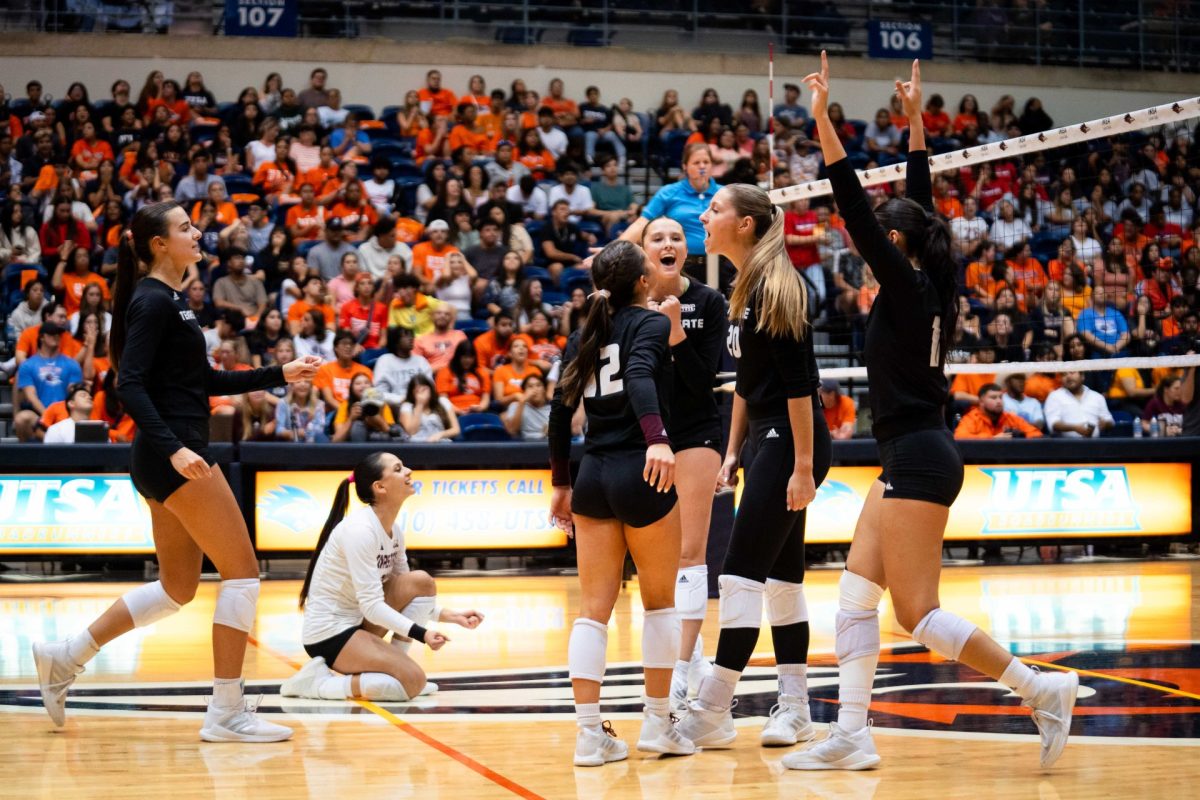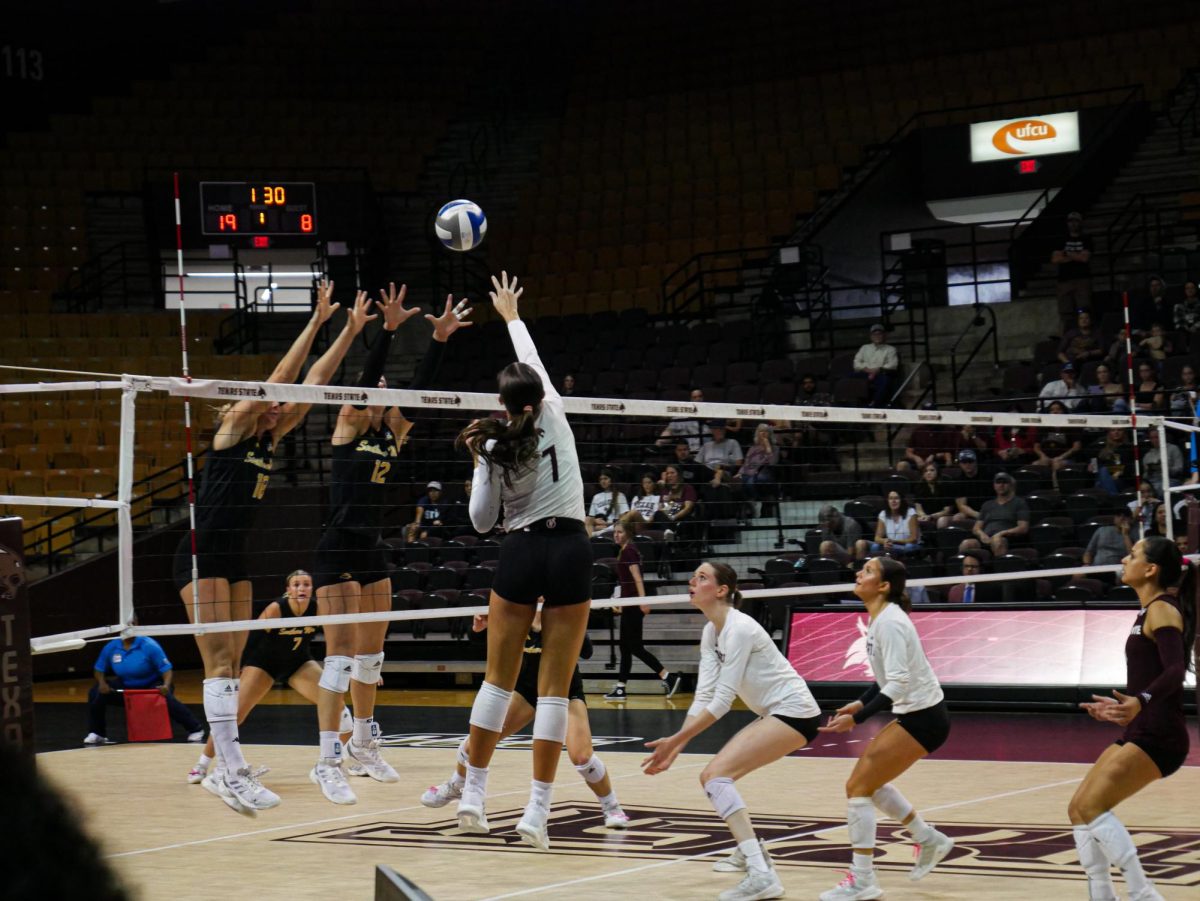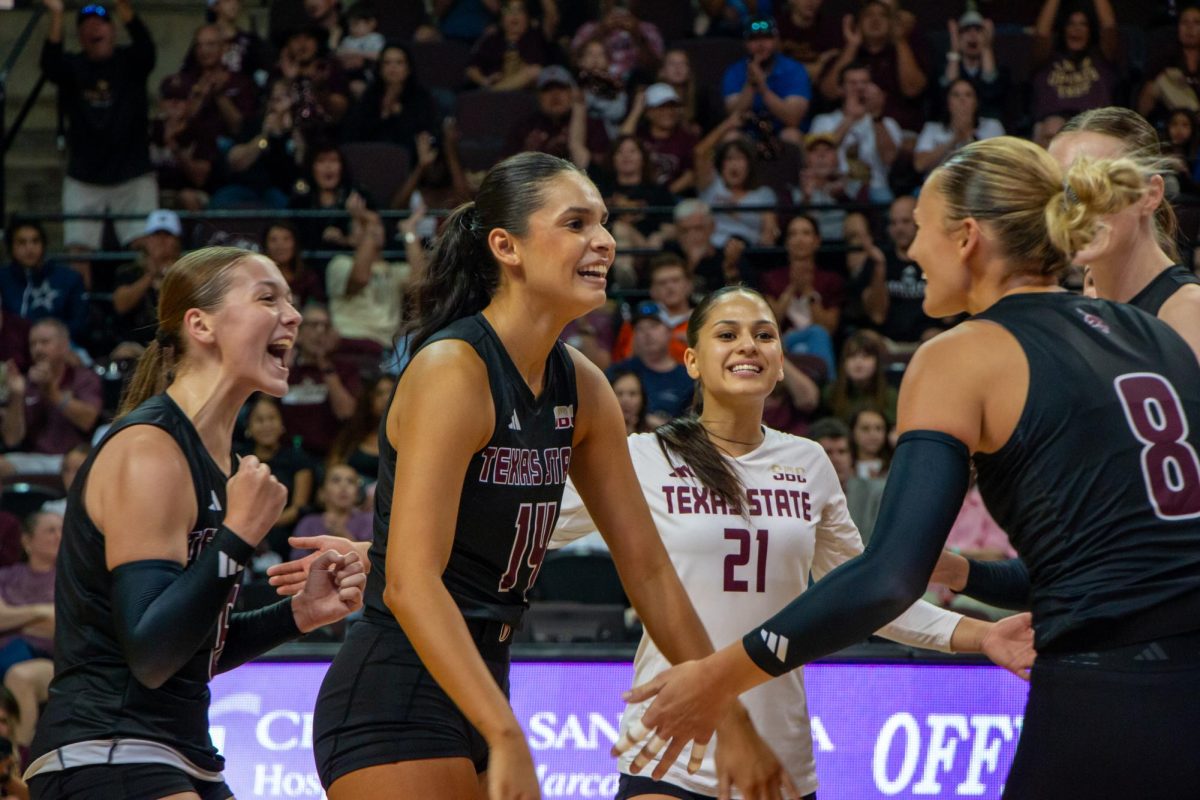Mornings are an important time for Sean Huiet and his son, Declan. Before the two brush their teeth, Declan steps onto his stool in his Mickey Mouse-themed bathroom and looks at himself in the square-shaped mirror above the sink. Teaching Declan good dental hygiene is important to Huiet, but the words he routinely tells him next mean much more.
“You are a strong Black man,” Huiet says while pointing to Declan’s reflection.
Huiet always had two goals in life: Become a Division I head volleyball coach and become a parent, both of which he has accomplished.
Each of those goals came with certain challenges, Huiet expressed. When taking over as Texas State’s head coach, he was replacing the legendary Karen Chisum who spent 40 seasons at the helm, winning eight regular-season championships and 10 tournament championships.
But when Huiet, a gay white man, became a father, he took on a much more meaningful task: Raise a Black child and teach him to embrace his Blackness.
“Is anyone really ready to be a parent?” Huiet asked.
Huiet grew up in a large family, which largely contributed to his love for children. He used to have conversations with his friend, who owns an adoption agency, about possibly adopting a child. In May 2016, she went to Huiet asking if he was ready.
Declan’s mother was in a tough situation and became pregnant shortly after choosing adoption for Declan’s older brother. Like anyone contemplating a life-altering decision, Huiet took some time to think about it and looked into the adoption process. After a short deliberation, he decided he was prepared.
“I knew in my heart that’s what I wanted to do, and the situation arose, and I was like, ‘Yeah, I’m ready for this.’” Huiet said.
Huiet was at the hospital when Declan was born and, after Declan’s birth mother, was the second person to hold him.
“I was there at the hospital with [Declan’s mother], and then we signed the papers, and I walked out of the hospital with Declan when he was 3 days old, and we’ve been hanging out ever since,” Huiet said.
Huiet and Declan are involved in what is known as open adoption, meaning Declan is still in contact with his mother and family in some capacity. Huiet chose that route because he wants Declan to know his story and how he fits into the world.
Declan can recite all of his brothers’ names and where his mother lives. Huiet says he wants Declan to feel special because of his differences, not ashamed.
Coming from a big family, Huiet had plenty of experience taking care of children, but when it came to raising his own child, he was nervous. Declan was born in December while Huiet was on a winter break, so he was able to spend valuable time and build chemistry with him.
“You think you know what you want to do as a parent, but when you’re in the moment, you don’t know how you are going to act and do things,” Huiet said. “You just kind of go with it, you kind of figure things out as you go.”
Helping Declan understand his place in the world
Volleyball Recruiting Coordinator Tori Plugge has spent a lot of time with Declan since arriving at Texas State and observed Declan and Huiet’s relationship.
“I think Sean and Declan are perfect for each other,” Plugge said. “They both fall into a quote-unquote minority category but different ones. I think it’s awesome that Declan is gonna get to grow up with such a diverse view on life and see so many different things.”
Huiet and his partner, Bryan Glatt, who has children of his own, have talked to Declan about the fact that they are gay and how that fits into society, as well as Declan’s life.
“It doesn’t have to be a mommy and a daddy in order for two people to make a family. So there is a lot of conversation in our house, with all of our children, about acceptance and what’s going on in the world,” Glatt said. “I always tell people, ‘You’ll never know what it’s like to be a gay man if you are not a gay man.’ Well, I’ll never know what it’s like to be a Black man, but I have to raise Black men.”
Declan has been confused at times about his place in the world. At one point, he thought he was born white and turned Black. He thought he did not have a mom then later thought that all women were called ‘mom.’
“We openly talk about [adoption],” Huiet said. “Even though he is 4 [years old], and I want him to be a kid, I also want him to know his story, and I want him to be able to grasp why his mom made the choice that she did and why I could be his dad… I think being able to have those talks with him have helped get me comfortable to have other talks with him that could be hard.”
Over the summer, when Huiet heard about the recent deaths of Black people at the hands of police brutality and racism, he began to realize his own privileges—privileges Declan will not have as a Black man.
“I don’t know what it’s like to be pulled over and have to keep my hands on the steering wheel and not ask questions and do everything [the police officers] say,” Huiet said. “I didn’t before know what it was like to go to bed at night and wonder if my child would be shot because of something that happened or not feel comfortable running through my neighborhood with a hooded sweatshirt. Those are things that I never had to think about, that friends and family and people that are of color had to. That to me has been the biggest thing.”
When Huiet was young, he would play with toy guns and swords in his yard. Now, he says it hurts him that Declan does not get to do that because of the color of his skin.
A mentor for Declan
Volleyball Associate Head Coach Keith Anderson, who is mixed, is very close to Declan, and Huiet says he is grateful to have him as a strong, positive role model for his son.
Huiet got to know Anderson through the volleyball grapevine and brought him on to his staff after becoming Texas State’s head volleyball coach. It was after joining Huiet’s staff that Anderson, or ‘Uncle Keith’ as Declan calls him, became close with Declan.
“It was super natural; I think that’s the cool part about it,” Anderson said. “Sean and I have known each other for a long time, and when he adopted Declan I was there for the kid’s first birthday. So I have been around, but I haven’t spent quite as much time with him as I have now, obviously with Sean and I working together. It was never something that was discussed; it’s just kind of naturally formed. The bond that [Declan and I] have is kind of cool.”
The first person Declan runs up to when he visits Huiet’s office is Anderson. They have sword fights; he gives Declan candy (against the wishes of Huiet) and spends time with Huiet and Declan at their home. Huiet can lean on Anderson to help him try to understand what Declan will experience as a Black man.
“With all of the stuff going on with Black Lives Matter, being able to pick Keith’s brain about growing up as a Black man and what I’m going to have to teach Declan and things that I have not had to live [through] that [Anderson] has had to live [through] has been very beneficial to me to be able to have him in our lives—to be able to help with that process and helping me be a better father for Declan in that role,” Huiet said.
Anderson says he is happy to help Huiet and Declan. Anderson grew up without a father after his parents divorced and was raised by the white side of his family. He was the only person of color in his environment a lot of the time, much like Declan.
“It’s not something that I just kind of like, ‘Hey, I’m your Uncle Keith and I’m here for you if you need it.’ It’s pretty special,” Anderson said. “Growing up, for me, I didn’t even have a dad in my life. Not saying that I’m a father figure or anything, but being a positive role model, it’s a cool opportunity. I have two nephews and a niece, and I treat Declan the same way that I do those three kids because they need positive people in their life, especially with the way things are unfolding in the world today.”
Anderson says he knows that Huiet is a more than capable parent. But as a Black man, there are things that Anderson has experienced and learned from that he can pass down to Declan—lessons that Huiet cannot.
“Living in my skin, as a person of color, I have just had experiences in my life that I didn’t expect myself, and so kind of learning how to navigate and go through those different situations and come out on the positive side of it is something that I feel like I can really contribute and share with Declan,” Anderson said. “I guess he is young, so there are small conversations that happen, but I feel like as he gets older, I will be able to share some of that stuff with him and kind of prepare him for potential situations that he could run into.”
Finding a second family
Huiet believes Declan has been embraced by Texas State’s Athletic Department. He says he sometimes feels guilty about having a hectic schedule due to his job, but Declan’s relationship with athletes, coaches and staff make up for that.
“There are times as a parent that my schedule is so crazy, and [Declan] has to do everything with me,” Huiet said. “But then I watch as my athletes, men’s and women’s basketball, the baseball team [and] all those other athletes, whenever they see him they hug him, they take him into their gym… So [in] the time I know it gets crazy, I know the things he is getting out of it has been awesome.”
Plugge says she has seen the benefits of Declan growing up in an athletic environment.
“He gets to interact with so many different types of people, and I’m super excited for my daughter to grow up in that same kind of environment,” Plugge said. “To have Sean kind of model and lead the way for me [is] really special.”
Declan loves Star Wars, superheroes and sports. Huiet says he wants to preserve Declan’s innocence for as long as possible. But he also knows Declan will inevitably witness racism firsthand, whether directly or indirectly, and he feels the responsibility to prepare him for it.
In the meantime, Huiet is focused on building memories with his son.
“My favorite thing, especially as a coach, I’m uber-competitive, and I hate to lose,” Huiet said. “There is just something different about losing and having that little boy run up and just give you a hug after a match. It’s like losing doesn’t really matter anymore. I’m doing something else for him… and even after a win the first person to run up and give me a hug is that little boy.”


